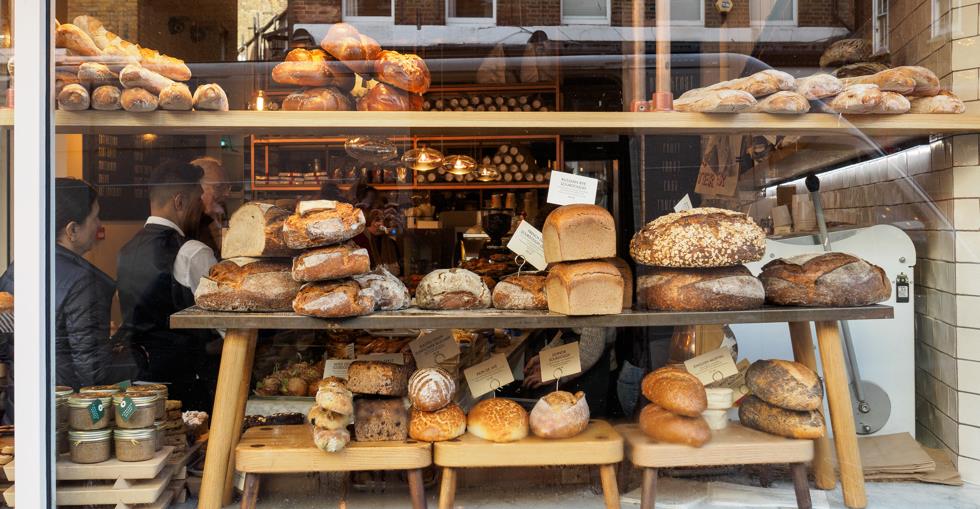Introduction
Starting a bakery business in South Africa involves launching a venture focused on baking and selling bread, pastries, cakes, and other baked goods. You enter a market with a rich culinary tradition and a growing appetite for artisanal and quality baked products.
In South Africa, you face unique opportunities and challenges shaped by diverse consumer preferences and regional tastes. You must navigate local regulations, secure permits, and understand market demand to succeed.
Establishing your bakery business also requires you to consider factors such as location, suppliers, and equipment. Additionally, you need to comply with health and safety standards to ensure product quality and safety. By addressing these elements thoroughly, you position yourself to thrive in South Africa’s competitive yet promising bakery sector.
1. Research Local Market Trends
To start a bakery business in South Africa, you first need to research local market trends. You must understand consumer preferences and demand for baked goods in different regions of South Africa. You should explore popular bakery products, such as artisan bread or specialty cakes, and see what’s trending.
You also need to analyze your competition by visiting other bakeries and noting their offerings and pricing strategies. You can use online tools and local business reports to gather data about market size and growth potential.
You might also want to consider demographic factors, like income levels and cultural preferences, that influence buying habits. Conducting thorough market research ensures you tailor your bakery business to meet local needs and stand out in South Africa’s diverse market.
2. Create a Business Plan
Creating a business plan for your bakery business in South Africa involves several critical steps. You start by defining your bakery’s mission and vision to guide your business strategy. You then outline your target market, detailing customer demographics and preferences specific to South Africa.
You need to develop a financial plan that includes startup costs, operating expenses, and projected revenue. Additionally, you should include a marketing strategy tailored to South African consumers, considering local advertising channels and promotional tactics.
You also need to address operational aspects, such as staffing requirements and supply chain logistics. Finally, you should plan for any potential risks and outline strategies to mitigate them. By crafting a comprehensive business plan, you set a clear path for your bakery’s success in the South African market.
3. Register Your Business Legally
The next step to launching your bakery business in South Africa is registering your business legally. You need to choose a business structure, such as a sole proprietorship, partnership, or private company, which impacts your legal obligations and tax responsibilities.
You then register with the Companies and Intellectual Property Commission (CIPC), which provides your business with a formal registration number. You need to also register for Value Added Tax (VAT) with the South African Revenue Service (SARS) if your annual turnover exceeds the VAT threshold.
You should consider obtaining a business bank account to manage your finances separately from personal funds. You must ensure compliance with the South African Reserve Bank’s foreign exchange regulations if you plan to import ingredients or equipment. By completing these registration steps, you legally establish your bakery business and align with South African regulations.
4. Obtain Necessary Permits
It’s important you obtain the necessary permits before you begin your bakery business in South Africa. You must start by registering your business with the Companies and Intellectual Property Commission (CIPC) to obtain a business registration number.
You then apply for a Food Handling Certificate from the Department of Health, ensuring your bakery meets hygiene and safety standards. You also need to secure a trading license from your local municipality, which may involve inspections and compliance with zoning laws.
You might require additional permits depending on your location, such as those related to signage or waste management. You should consult with local authorities or a legal advisor to ensure you meet all regulatory requirements. By obtaining the proper permits, you legally establish your bakery business and ensure compliance with South African regulations.
5. Find a Suitable Location
Finding a suitable location for your bakery business in South Africa involves several key considerations. Make sure you identify high-traffic areas that attract your target customers, such as shopping centers or bustling street corners. You should evaluate the local market to ensure there is demand for your bakery’s offerings in the chosen area.
You need to consider the cost of rent, utilities, and other operational expenses, which can vary widely depending on the location. You also have to ensure that the location complies with local zoning laws and regulations.
You might want to assess the accessibility of the location for both customers and suppliers, ensuring ease of transport and delivery. Additionally, you should visit potential sites during different times of the day to gauge foot traffic and customer activity. By carefully selecting your location, you enhance the visibility and success of your bakery business in South Africa.
6. Purchase Equipment and Supplies
Take note that purchasing equipment and supplies for your bakery business in South Africa requires careful planning. You begin by listing essential bakery equipment, such as ovens, mixers, refrigerators, and display cases, to ensure you meet production needs.
You should research local suppliers who offer high-quality equipment at competitive prices, as well as evaluate their service and support options. You need to consider sourcing ingredients from reputable suppliers, including flour, sugar, and yeast, and verify quality and freshness.
You might want to explore South African wholesalers and suppliers to find reliable sources for both local and imported ingredients. You also have to factor in the costs of maintaining and repairing equipment. By strategically acquiring your equipment and supplies, you set a strong foundation for your bakery business’s operations in South Africa.
7. Develop a Marketing Strategy
You need a marketing strategy for your bakery business in South Africa which involves targeted and strategic planning. You start by identifying your unique selling proposition (USP) that differentiates your bakery from competitors in the South African market.
You should craft a brand identity that resonates with local consumers, including a memorable logo, color scheme, and tagline. You need to leverage social media platforms popular in South Africa, such as Facebook, Instagram, and Twitter, to promote your products and engage with customers.
You might also consider collaborating with local influencers and food bloggers to increase your bakery’s visibility. You should explore local advertising options, such as community newspapers, radio stations, and event sponsorships, to reach a broader audience.
By implementing a well-rounded marketing strategy, you effectively attract and retain customers for your bakery business in South Africa.
8. Comply with Health Regulations
Complying with health regulations for your bakery business in South Africa is crucial for ensuring safety and legality. You must understand the regulations set by the Department of Health, which include maintaining high standards of hygiene and food safety.
You must ensure your bakery complies with the South African National Standards (SANS) for food safety, which involves regular inspections and adhering to cleanliness protocols. You need to implement proper waste management practices to prevent contamination.
You should also train your staff in food handling and sanitation procedures to meet health standards. You might consider obtaining a Certificate of Acceptability from your local municipality, confirming that your bakery premises meet all health and safety requirements.
Recap
Starting a bakery business in South Africa involves thorough market research, creating a detailed business plan, legal registration, and obtaining necessary permits. You need to select a suitable location, purchase equipment and supplies, develop a marketing strategy, and comply with health regulations. Each step ensures a successful and legally compliant bakery operation.


















